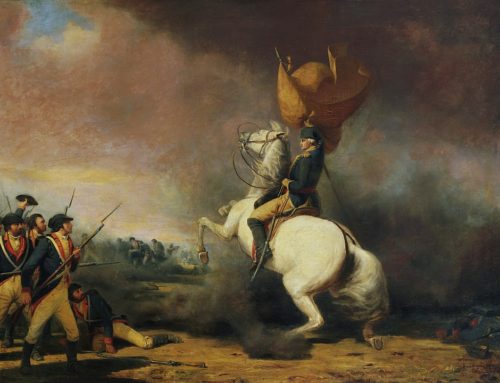Over the past few years, there have been major attempts to recast our image of the American Civil War. I am supportive of many of these efforts. Specifically, rather than focus on Civil War Battles, it is much more constructive to discuss our history of racism, the passing of the Civil Right Amendments, Reconstruction, Jim Crow litigation, disenfranchisement of African-Americans, and the appropriate place for statues of Confederate generals and soldiers. We need to recognize explicitly that slavery was a central cause of the Civil War. The lasting benefit of the Civil War was abolition.
Now that more than 150 years have passed since the Civil War, the interest in this war has dramatically diminished. Specifically, in recent years visitors at Civil War battle sites such as Gettysburg, Bull Run, etc. have declined to 14% from attendance twenty years ago.
Furthermore, many communities have removed statues of Confederate soldiers in recognition that they are offensive. From my perspective, I was appalled that almost all of the support of keeping a statue of General Lee in Charlottesville, Virginia was by right wing White racists. I agree with the decision my college, the University of Texas, to remove statues of Confederate generals from key campus sites.
In my judgment, we are too critical of the major men that have contributed to American history. That is, while our educators glossed over the flaws of George Washington, Thomas Jefferson, James Madison, Robert Lee, Andrew Jackson, Theodore Roosevelt, Woodrow Wilson, and Franklin Roosevelt, even in hindsight these were great men. I would compare them favorably to other notables such as Napoleon, Elizabeth I, Alexander the Great, Bismarck, etc. Furthermore, they seem like demigods compared to our current generation of leaders. In brief, who among us is without sin can cast the first stone? In my youth, I was taught that that George Washington never told a lie. I now believe in my old age that President Trump never tells the truth.
With the above caveats, I still think it is imperative that Americans study the lessons of the Civil War. First of all, our failure to compromise led to the death of 2% of the population. Stated differently, 25% of Southern white men of military age died during the conflict. It is therefore understandable that white Southerners focused on the negatives of Reconstruction rather than the rampant racism that scarred the lives of their African-American fellow citizens.
Secondly, The Civil War provided an impetus to industrialization in the North and Midwest with its economic benefits. It destroyed the Southern economy until the end of World War II. Even today, the standard of living in the Deep South is far below the rest of the nation.
Thirdly, while slavery was an impetus for Southern secession, maintaining the Union was the foremost issue in the North. In fact, abolition was politically divisive in the North. The highlight of dissention was the draft riots in New York City several weeks after the Battle of Gettysburg. While the immediate issue was the draft, poor Whites out of their frustration killed possibly as many as 120 Blacks. To restore order, Union Soldiers were brought in to restore order.
Fourth, despite the incredible carnage caused by the Civil War, citizens of the North on balance were very tolerant toward their former Southern enemies. That is, within a few years of the ending of the Civil War, Confederate leaders regained their voting rights, and served important leadership positions at local and national levels. A former Confederate soldier, Edward White, became Chief Justice of the United States. In that role, White led a nearly unanimous court to support Jim Crow laws and practices. I recognize that my following statement is controversial. That is, I believe that Blacks suffered from benign neglect in order to restore the Union from 1877 to the 1960’s.
Fifth, in my lifetime, the Solid South has changed from being a bastion of support for the Democratic Party to the Republican Party. We need to understand that the legacy of the Civil War has genetically imprinted the South politically.
Sixth, we need to explicitly recognize that it is healthy for America to reserve significant political rights to state and local governments. In brief, America is so large and diverse it is important to recognize that the populace of different regions has dramatically different value systems. If we try to enforce uniform practices, a backlash such as occurring in Europe will occur in America.
Seven, in understanding American history, we need to educate our populace about the legacy of racism. That is, there was as much intolerance toward Asians in the West Coast, native Americans in the West as there was against Blacks throughout America. How many of us know that 12 U.S. presidents until the Civil War era owned slaves. In contrast, the only presidents that did not own slaves were John Adams, John Quincy Adams, Franklin Pierce, and James Buchanan.
We all are disgusted by the evils of slavery. We need to recognize that the repugnance toward slavery is a function of relatively recent revelations of its horrors from transportation from Africa to treatment on the plantations. We also must recognize that de facto segregation persisted in most of America until the 1970’s. In my youth, movies such as Gone with the Wind were the object of fascination. Gone with the Wind made slaves seem like servants and highlighted the inequities of Reconstruction. It failed to highlight the infamous role of the Ku Klux Klan in restoring White rule.
In conclusion, we need to learn that despite the fact that 10% of the Union soldiers were Blacks, the North turned their back on African-Americans rights until the 1960’s. Possibly, Northerners were so anxious to reunite the country that they eviscerated the Civil War amendments. They allowed Jim Crow practices and effective Black disenfranchisement. These terrible practices were fully supported by the U.S. Supreme Court. Liberals such as Justices Holmes, Brandeis, Hughes, and Stone supported ancillary cases similar to Plessey vs. Ferguson. For example, the Supreme Court approved all White Democratic Party registration in the South, discriminatory houses clauses, the right of the State of Mississippi to designate an Asian as a Black in their school system, eugenics, concentration camps for Japanese American citizens, etc. For Americans to really understand our history, we need to emphasize the importance of presenting various points of view and the destructiveness of simplistic conclusions.



